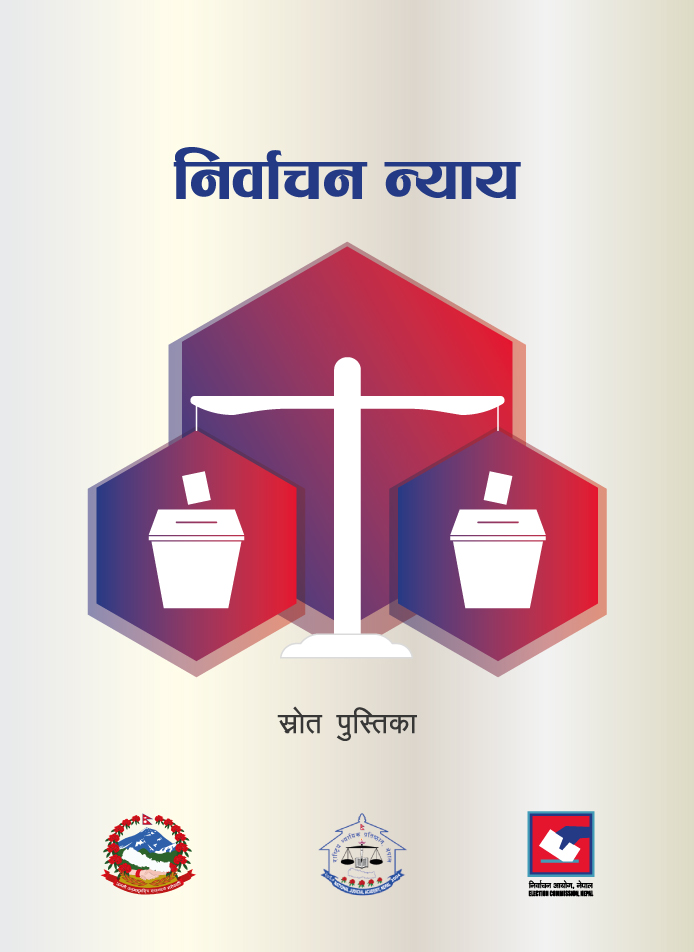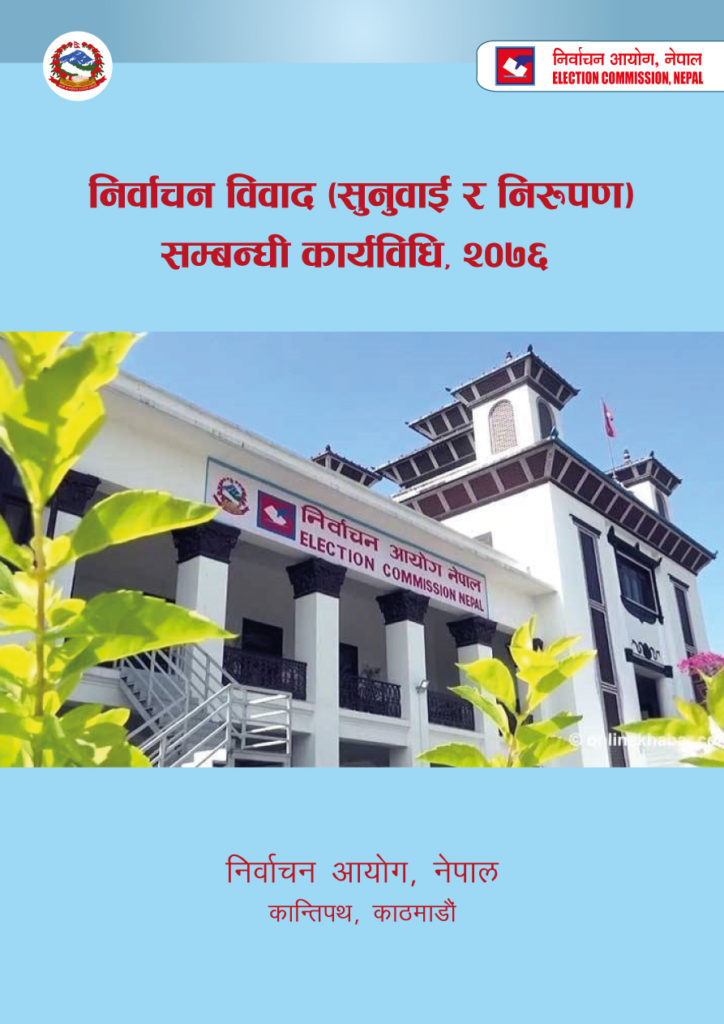Electoral dispute resolution and electoral justice are core elements for credible elections and a strengthened democracy. In line with its mandate, the UNDP Electoral Support Project (ESP) contributed to strengthening Nepal’s electoral justice system to effectively resolve electoral disputes.
The project supported the Election Commission, Nepal (ECN) to develop a procedure for electoral dispute resolution as well as related training manuals. Based on this, the Election Commission conducted capacity building trainings with the representatives from political parties, the District Administration Office, the Armed Police Force, Nepal Police, journalists, observers and civil society.
The idea was that bringing together the diverse electoral stakeholders, and particularly the political parties, would help resolve electoral disputes that may arise. Furthermore, it would provide a venue to discuss issues which may turn into electoral disputes in the future, and give the Election Commission the opportunity to inform stakeholders on how to address such matters in a systematic way. Speaking at one of the workshops in Kaski district, the Honourable Chief Election Commissioner Dinesh Kumar Thapaliya stated, “An electoral dispute resolution mechanism will help resolve electoral disputes in a timely manner and at the right level by the responsible authority for effective results.”
To complement this, the Electoral Support Project also worked with the National Judicial Academy (NJA) to prepare and finalise a resource book on electoral justice with inputs from the Election Commission. This book is the first of its kind and seeks to transmit knowledge of the technical aspects of elections from a legal perspective. Based on this resource book, the National Judicial Academy led the organisation of Master Training of Trainers on electoral justice and organised five events on electoral justice in different parts of the country, drawing participation from representatives of the High Court, Office of the Attorney General and court officials.
These workshops helped form a common understanding among different stakeholders on issues of electoral justice and electoral dispute resolution and targeted areas where the 30 November 2019 by-elections took place. The training on electoral dispute resolution reached 147 participants, with 35 women, and 100 percent of participants reported enhanced knowledge after attending the training. The workshops on electoral justice also reached 147 participants, including 11 women, and 99 percent reported enhanced knowledge post-training. The Electoral Support Project will support updating and publishing the reference and training materials following these first series of workshops so that they can continue to be used to improve electoral justice in Nepal in the future.
The Electoral Support Project- Phase II (ESP) is a technical assistance initiative which focuses on a long-term institutional and professional capacity development of the Election Commission Nepal (ECN) to conduct credible, inclusive and transparent elections. The objectives of the project are 1) to strengthen the capacity of the ECN to function as an independent and credible institution, 2) to allow the conduct of the election cycle in an effective, sustainable, and credible manner, and 3) to increase democratic participation, particularly for under-represented and disadvantaged segments of the Nepali society. In 2019, ESP was funded by the EU and UNDP.


